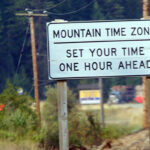Home »

Peter Høeg is a writer’s writer
Book Review
By Derryll White
Høeg, Peter (1993). Smilla’s Sense of Snow.
 There is a hint on the first page of what shape this journey will take – “…the language that is no longer mine.” So, a Danish quest, an exploration of the heart. What an amazing territory to circumnavigate. This is a complex, beautiful story written for lovers, mathematicians, writers, readers and others who simply wander. Peter Høeg risks a great deal here, opening both himself and a little known society (Greenland) to scrutiny.
There is a hint on the first page of what shape this journey will take – “…the language that is no longer mine.” So, a Danish quest, an exploration of the heart. What an amazing territory to circumnavigate. This is a complex, beautiful story written for lovers, mathematicians, writers, readers and others who simply wander. Peter Høeg risks a great deal here, opening both himself and a little known society (Greenland) to scrutiny.
During her childhood Smilla achieved an intimate understanding of Greenland’s snow, the way Canadian Inuit demarcate a seemingly endless number of snow characteristics. Later as an adult scientist she specialized in snow and ice. Smilla is one of the most intriguing female characters I have encountered in literature. She has a supernatural native sense of direction, but she also has an incredible sense of self. She reduces things, to purity. There is anobsidian quality obstinacy to her. Exert pressure and all one exposes is a new sharp edge that will cut to the core. Every man longs for such a woman – her world is as sharp as a knife.
Peter Høeg is a writer’s writer. I do not give that salute often or frivolously. He tells a complex and intriguing story, and he tells it gently, layer-on-layer, unfolding as the earth does and as the ices does – unrelentingly. There are no extraneous bits, no filler. But while the story reveals itself Høeg indulges the reader with discrete and brilliant pieces of beauty.
He is comfortable with the uncommon and brings his readers to flirt with the unknown. He offers totally new meanings for love and culture. He buries moments of pure poetry in the flowing prose, mind traps for the unwary. Høeg offers geography in this novel that most readers have never contemplated, and does it in a manner that draws the adventurous inexorably to it.
The reader of this review might hesitate, think “1993, almost twenty years old. There has to be better, more current novels.” Yes, there are a few; Cormac McCarthy and Charles Frazier come to mind. But there aren’t that many, and particularly in the mystery /suspense field, that the devoted reader of quality literature can afford to bypass ‘Smilla’s Sense of Snow.’ This novel has won a place on my all-time-best bookshelf. It has also kindled a desire to go to Greenland.
********
Excerpts from the novel:
DANES – I’ve never understood the Danish penchant for wandering around at night. Taking a stroll in pitch darkness. Nightingale walks in the woods. Insisting on gazing at the stars. Nighttime orienteering.
SEX – When you’re young, you think that sex is the culmination of intimacy. Later you discover that it’s barely the beginning.
DANES – He is the quintessential Dane, with his fear, his iron resolve to repress what’s happening around him. And his indomitable optimism.
DEATH – …lately I’ve been wondering about the ancient Greenlandic realm of the dead. If you consider all the unpleasantness you encounter while you’re alive, it seems improbable that it would all come to an end simply because you’re dead.
PERCEPTION – In Sunday school they taught us that the sun was Our Lord Jesus; at boarding school we learned for the first time that the sun was supposed to be a continuously exploding hydrogen bomb.
For me the sun has always been the Heavenly Clown.
LOVE – Love arises when you have a surplus; it disappears when you’re reduced to the basic instincts – hunger, sleep, the need for security.
KNOWLEDGE – We all live our lives blindly believing in the people who make the decisions. Believing in science. Because the world is inscrutable and all information is hazy… We are all proselytes of science. And in contrast to the followers of other religions, we can no longer bridge the gap between ourselves and the priests.
CHANGE – The difficulty with the earth’s geological history is that it can’t be studied. There are no traces. Because since that time [4.6 billion years], since the time of Creation, rocks like these have gone through a countless number of metamorphoses. The same is true of the ice around us, the air, and the water. There are no substances on earth that have preserved their original form.
MEMORY – His love had given up hope. But it had locked on to memory. I was that memory.
MATERIAL THINGS – The last Christmas guests have taken their trailers full of presents home. Now they’re lying in bed looking forward to the day after tomorrow, when they can go out and exchange them or get cash instead.
SOLITUDE – People who have lived alone all their lives can allow themselves to refine highly specialized interests,
PRESENCE – …I realized that any moment could be the last. Nothing in life should simply be a passage from one place to another. Each walk should be taken as if it is the only thing you have left.
MARX – …we read Karl Marx’s “Das Kapital.” It was a book I grew quite fond of. For its trembling, feminine empathy and its potent indignation. I know of no other book with such a strong belief in how much you can accomplish if you simply have the will to change.
LANGUAGE – “Language is a hologram…. In every human utterance lies the sum total of that person’s linguistic past.”
SELF-PITY – Whining is a virus, a lethal, infectious, epidemic disease. I refuse to listen to it.
HAPPINESS – Nothing corrupts like happiness. It makes us think that since we share this moment, we can also share the past. Since he’s strong enough to meet me in the present, he must be able to contain my childhood as well.
DANES – I’ve always been fascinated by the melancholy shamelessness with which Danes accept the enormous gap between their common sense and their actions.
LOVE – Falling in love is a form of madness. Closely related to hatred, coldness, resentment, intoxication and suicide.
DEATH – The bad thing about death is not that it changes the future. It’s that it leaves us alone with our memories.
LOVE – Falling in love has been greatly overrated. Falling in love consists of 45 percent fear of not being accepted and 45 percent manic hope that this time the fear will be put to shame, and a modest 10 percent frail awareness of the possibility of love.
– Derryll White once wrote books but now chooses to read and write about them. When not reading he writes history for the web at www.basininstitute.org.







